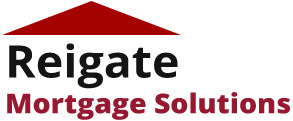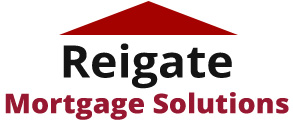Mortgages
This page explains the different ways of repaying the mortgage and the different types of interest rate available.
Repayment Mortgage
Also known as a capital & interest mortgage, repayment mortgages are guaranteed to repay the loan at the end of the term assuming that all monthly payments are met.
Each monthly payment that you make is divided in two. One part repays some of the loan and the other part pays the interest charged on the loan by the lender. In the early years of the mortgage more of your payment will go towards the interest, however as you owe less, more will go towards repaying the loan. As mentioned earlier your loan is guaranteed to be repaid at the end of the term.
Monthly payments on a repayment mortgage will be greater than an equivalent interest only mortgage.
Interest only
As the name suggests with this type of mortgage your monthly payment only pays the interest charged by the lender and you are not reducing the amount that you borrow.
This type of loan is typically taken out by someone who runs a separate investment along side the mortgage with a view of using the investment to repay the loan.
The danger with this is if the investment is unsuccessful you could ultimately lose the property at the end of the mortgage term.
Others who apply for this type of loan are people who are looking to sell the property before the end of the term and use the equity in their current property to buy their next property outright.
Lenders have restricted the amount that is available on interest only and although some lenders will lend up to 75% of the value of the property most will only lend up to 50%.
For buy to let mortgages lenders generally will lend on an interest only basis and will accept that the property will be sold to repay the capital before the end of the term of the mortgage.
Once the decision has been made as to whether you require a repayment or interest only mortgage we need to decide what type of interest rate best suits your requirements. There are 5 main types of interest payment, below is a brief explanation on each.
Fixed
Fixed rate mortgages have a rate of interest that remains the same for a set period of time. Typically you can fix the rate between 2 and 5 years however it is possible with some lenders to fix it for a longer period of time if you wish.
The advantages of fixed rates is that you know exactly what your monthly payments will be. If interest rates rise you are not affected.
The disadvantages are that if interest rates fall you could end up paying more than you would have on a variable rate mortgage. If you want to redeem the loan before the end of the fixed rate there may be an early repayment charge which can run to several thousands of pounds. You may also be limited to the amount that you could potentially overpay and there will normally be a fee for arranging the fixed rate.
Variable
A variable rate is a rate of interest set by the lender which typically changes when the Bank of England review their interest rate. The rate is usually between 2% and 3% higher than the Bank of England rate.
With this type of mortgage the upside is if interest rates fall you will pay less per month but if they rise you will pay more. There is normally no fee for arranging the variable rate and no early repayment charge should you wish to repay the loan.
Discount Variable
Similar to a variable rate mortgage but the lender offers a discount for a set period of time usually between 1 and 5 years.
Again the advantage being that if interest rates fall you will pay less and a disadvantage that if they rise you will pay more. You will also usually have to pay an early repayment charge to leave the mortgage before the end of the discounted period, there may be an initial fee to arrange the discounted rate and you may also be limited to the amount of potential overpayments you can make.
Tracker
Again very similar to a variable rate. The difference being that the rate is guaranteed to always be a certain percentage above or below the Bank of England rate for a set period of time.
Again the advantage being that if interest rates fall you will pay less and a disadvantage that if they rise you will pay more. You will also usually have to pay an early repayment charge to leave the mortgage before the end of the discounted period, there may be an initial fee to arrange the tracker rate and you may also be limited to the amount of potential overpayments you can make.
Capped
With a capped rate mortgage the interest rate that you pay may fall but cannot go above a predefined maximum for a set number of years.
The advantage being is that the interest rate that you pay can never increase beyond a certain level and you will also benefit from any rate falls.
The disadvantages being that you may pay an early repayment charge if you wish to leave the mortgage within the set period. There are also a limited number of these schemes available and they can often be less competitive than a fixed, discount variable or tracker rate and you may also have to pay an initial fee to set up the mortgage.
These mortgages are currently very rare.
Your home may be repossessed if you do not keep up repayments on your mortgage.
Contact
For more information please call us on 01737 222353 or email your requirements to enquiries@reigatemortgagesolutions.co.uk.


